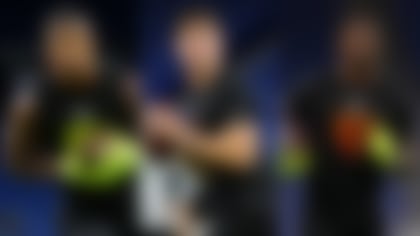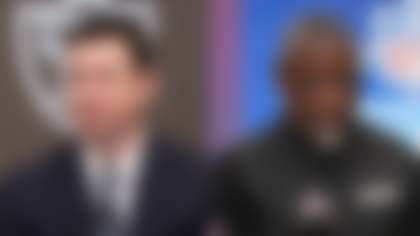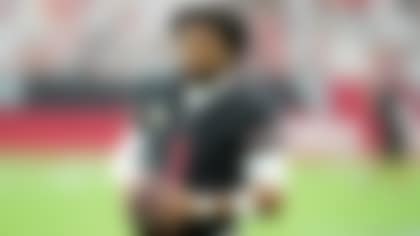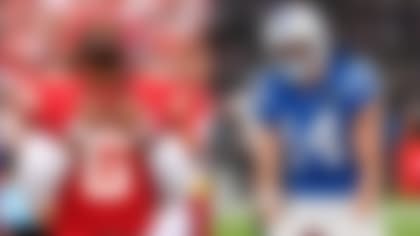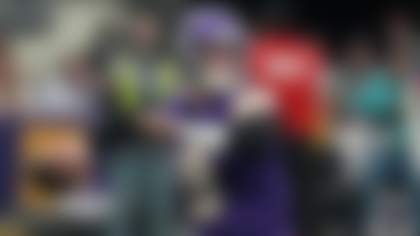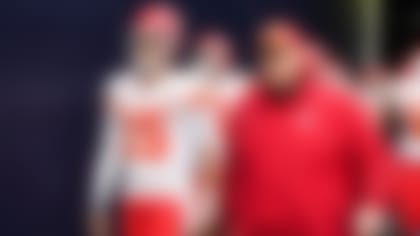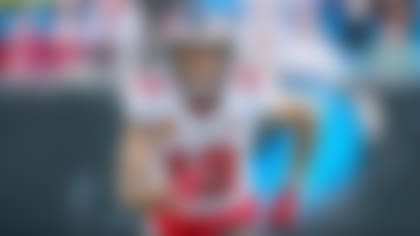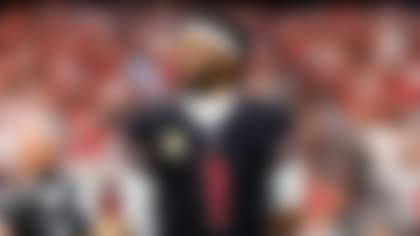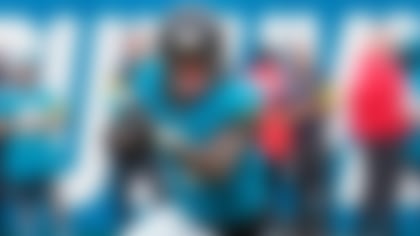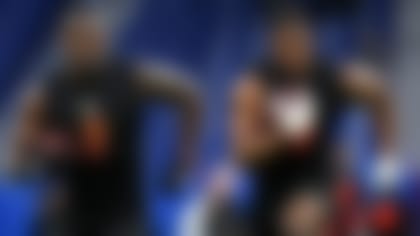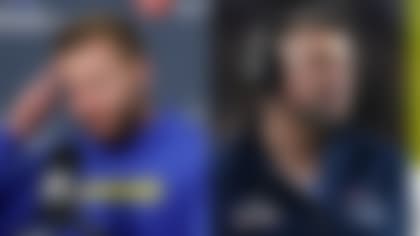NEW ORLEANS -- A Saints coach walked slowly through the locker room after a 26-23 overtime loss to the Rams on Sunday afternoon in the Mercedes-Benz Superdome, his eyes still red from the emotion of finishing one win from advancing to Super Bowl LIII. Losing when you're so close to taking another step toward your profession's ultimate goal is one thing, but losing, in part, because the officials failed to call pass interference on a play that even the league admitted should have drawn a penalty flag, well, that was almost too much to take.
"That is not OK," the coach said, requesting anonymity for fear of being fined by the league. "We lose our jobs over things like that. I've never seen a penalty that blatant that wasn't called, and I'm not being biased. The guy was there seconds before the ball, and on top of that, there was helmet-to-helmet contact. It's just a shame that it had to end like that."
Technically, the game did not end with that third-down play with 1:45 remaining in regulation. The Saints kicked a 31-yard field goal to take a 23-20 lead, but then allowed the Rams to drive 45 yards in the final moments of regulation to set up their own 48-yard field goal. Los Angeles won it after an interception of Drew Brees set up a 57-yard field goal with 11:43 left in overtime.
Still ...
If Rams defensive back Nickell Robey-Coleman, who barreled face-first into Tommylee Lewis along the sideline, had been called for pass interference or helmet-to-helmet contact, the Saints would have had a first down at the Los Angeles 6- or 7-yard line with an opportunity to run down the clock before attempting a decisive field goal.
"The sideline official reached for his flag, but he didn't pull it out," Saints wideout Michael Thomas said. "It looked like he was going to throw it, but another official came running in, and it was like he got intimidated."
"The first thing Al said when I got on the phone was, 'We messed it up,' " said Payton, who added that Riveron told him there "should never have not been a call. He said not only was it interference, it was helmet-to-helmet. They couldn't believe it."
Riveron did not immediately return a call or text from NFL.com.
It has been a rough year for officials. It began with changes to how games would be called this year, specifically as it related to players lowering their heads to initiate contact, and it included line judge Hugo Cruz being fired in October after missing an obvious false start in a Cleveland Browns game, marking the first time in the Super Bowl era an official was fired midseason.
Privately -- and sometimes publicly, although in diplomatic fashion -- players and coaches cautioned that the errors could wind up costing teams games and coaches their jobs. Not to be overlooked were the possible consequences for players.
For instance, Saints tight end Ben Watson had already announced that this would be his final season. The 15-year veteran, who is regarded as one of the game's classier players and who missed Sunday's game because of appendicitis, was hopeful of ending his career with something he has never experienced: a Super Bowl victory. (Watson was on injured reserve when the Patriots won the Super Bowl in his rookie season of 2004.) That won't happen now.
Brees, the league's all-time leading passer and an 18-year veteran who turned 40 this week, said he plans to return next season but acknowledged this one cut deeply because of the difficulty of getting this far. He led the Saints to a Super Bowl win during the 2009 season and has been fighting unsuccessfully to get back since.
There are other veterans and youngsters who understand just how precious these opportunities are, and to have the game end in controversy is a shame for them and the league, especially considering the heartache the Saints had to endure last year when their Divisional Round game against the Vikings ended on the flukiest of plays, with Minnesota wideout Stefon Diggs scoring on a 61-yard catch-and-run on the final play.
It's a hard job for those guys because it's happening fast," Payton said of the officials, "but I don't know if there was ever a more obvious pass interference call that, you know, here it is, the NFC Championship Game. So, tough one to swallow."
Robey-Coleman wasn't coy about what transpired, telling Robert Klemko, of The MMQB: "Yes, I got there too early. I was beat, and I was trying to save the touchdown."
Said Lewis: "I got up looking for a flag and didn't see one. It was a bad call."
Most Saints players tried to coat their displeasure, but their feelings seeped through. Like defensive end Cam Jordan, who said, "Without going in to bashing the referee because I don't know what he saw -- maybe he doesn't know what he saw. Maybe the lights were too bright for him to see."
And Brees: "That's tough to swallow. Plenty of times throughout the season there are calls that go against you or go for you, or they miss or they didn't. Obviously, in a situation like that, where it seemed liked everybody in the world saw it, that's tough."
There's no question the degree of difficulty is high when it comes to calling games that involve players who are as big and as fast as those in the NFL. And while I generally support the "let them play" mentality, that applies to ticky-tack infractions, not something as blatant as what we saw from Robey-Coleman. If you're not going to call that, what's the use of having rules at all?
Thomas sat in stunned silence at his locker for a time. He typically tries to find the positive in a situation, but this one was tough.
"This is only going to make us tougher," he said finally, speaking barely above a whisper. "This one is going to hurt for a while, just like the one last year did. That one hurt all the way up to last week's game."
The Saints were able to erase that pain with a win over the Eaglesin their playoff opener this year. The only issue now is that there is no guarantee they will get back to this point next year, which makes the non-call even more difficult for them to accept.
"It's never going to be perfectly officiated," said Brees. "There is a lot happening out there and it happens very, very fast. You could talk about a solution, potentially being replaying certain types of penalties. Maybe ones that you say are pretty black and white in regards to whether it was or wasn't. I do not know how far that will go. Obviously, if they were replaying pass interference or whether someone was hit early before the ball even got there, then I'm sure that would've been reviewed today. It would have been found that it was PI, but it wasn't."
Follow Jim Trotter on Twitter _@JimTrotterNFL_.

